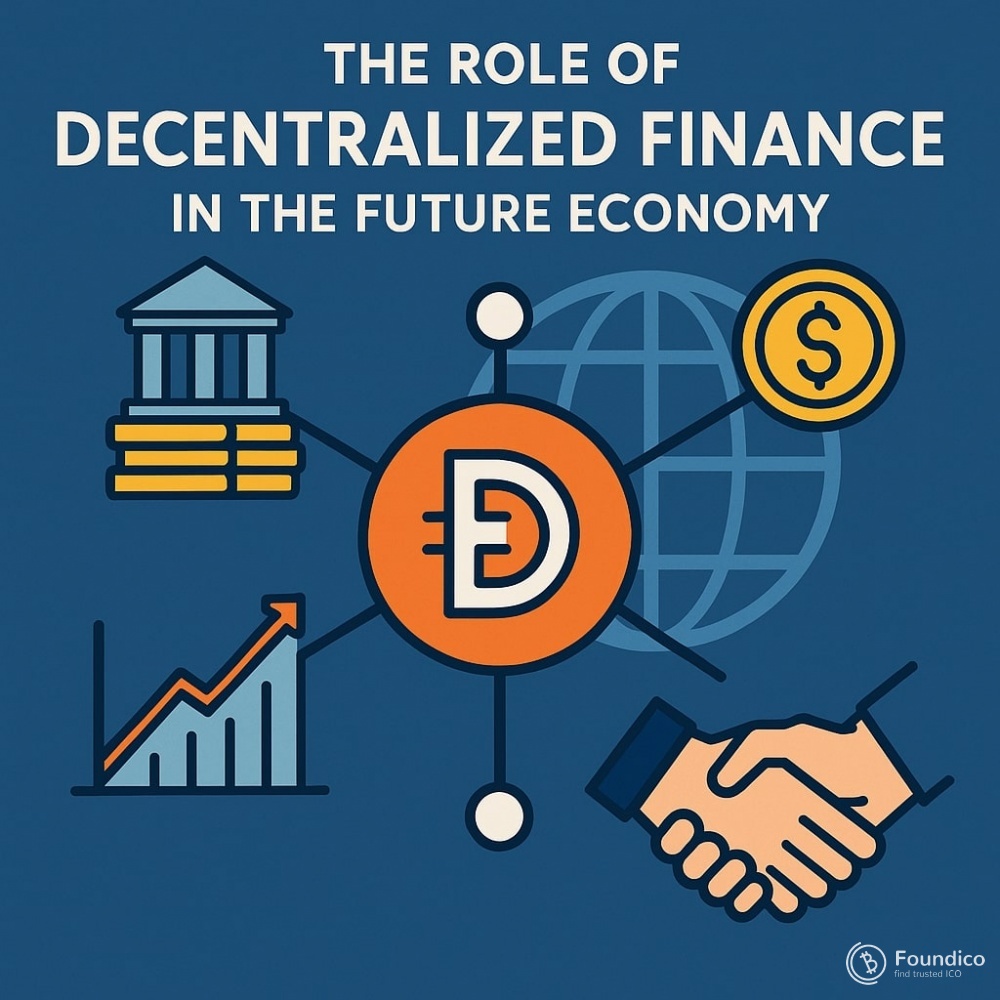The Role of Decentralized Finance in the Future Economy

By Dr. Pooyan Ghamari, Swiss Economist and Visionary
In recent years, decentralized finance (DeFi) has emerged as one of the most transformative forces in the global financial ecosystem. As traditional finance grapples with inefficiencies, lack of transparency, and systemic risks, DeFi promises to usher in a new era of financial inclusion, innovation, and empowerment. This article explores the profound role DeFi will play in shaping the future economy, examining its potential, challenges, and long-term implications.
Understanding Decentralized Finance
Decentralized finance refers to financial systems built on blockchain technology that operate without traditional intermediaries like banks or brokers. By leveraging smart contracts—self-executing contracts with the terms directly written into code—DeFi platforms allow peer-to-peer transactions, lending, borrowing, trading, and more, with unprecedented transparency and automation.
Unlike centralized financial systems, where a handful of institutions control capital flows and credit allocation, DeFi democratizes access by enabling anyone with an internet connection to participate. This disruption has profound consequences for the future economy.
Driving Financial Inclusion
One of the most critical contributions of DeFi is the potential to extend financial services to billions of unbanked and underbanked individuals worldwide. Traditional banking infrastructure often excludes those in remote regions, developing countries, or those lacking formal identification documents. DeFi protocols, being borderless and permissionless, provide these populations with access to savings accounts, loans, insurance, and investment opportunities without intermediaries.
This enhanced financial inclusion will stimulate economic growth by empowering entrepreneurs, enabling micro-financing, and facilitating remittances with minimal fees and delays. It transforms finance from a closed system into an open network, increasing participation and fostering wealth creation.
Enhancing Transparency and Security
Transparency is a core feature of DeFi systems. All transactions and contract rules are recorded on public blockchains, accessible for audit in real time by any participant. This level of openness reduces fraud, corruption, and manipulation, which have plagued traditional finance. Moreover, the cryptographic security underpinning blockchains ensures that funds and data remain tamper-proof and resilient against cyber-attacks.
This trustless environment reduces reliance on centralized intermediaries, cutting operational costs and risks. Businesses and consumers alike can transact with confidence, fostering a more stable and trustworthy financial landscape.
Innovation and New Financial Instruments
DeFi’s programmable nature allows the creation of novel financial instruments and complex derivatives that were difficult or impossible in traditional finance. Automated market makers (AMMs), yield farming, liquidity pools, decentralized exchanges (DEXs), and synthetic assets are reshaping how markets operate.
These innovations lead to more efficient price discovery, better liquidity, and new investment strategies accessible to a broader audience. For institutional investors, DeFi presents an opportunity to diversify portfolios and gain exposure to emerging digital assets, further integrating crypto with mainstream finance.
Challenges and Regulatory Considerations
Despite its promise, DeFi faces significant hurdles that must be overcome to fully realize its role in the future economy. Regulatory uncertainty remains a critical challenge. Governments and regulators worldwide are still adapting to DeFi’s unique characteristics, balancing innovation with consumer protection and anti-money laundering (AML) measures.
Security risks also persist. Smart contract bugs, exploits, and governance vulnerabilities have led to notable losses, underscoring the need for robust auditing and risk management frameworks.
Furthermore, the scalability of blockchain networks is still evolving, with transaction speeds and costs impacting user experience. However, ongoing developments in layer 2 solutions and next-generation blockchains are addressing these limitations.
The Future Economic Landscape with DeFi
Looking ahead, decentralized finance is poised to become a foundational pillar of the future global economy. Its integration with traditional finance will create hybrid models combining the best of both worlds: the security, efficiency, and inclusivity of DeFi alongside the regulatory frameworks and customer protections of legacy institutions.
Central banks and multinational corporations are already exploring blockchain-based digital currencies and DeFi applications. The rise of decentralized autonomous organizations (DAOs) points to new governance models that could redefine corporate and economic structures.
In this evolving landscape, economic empowerment will no longer be confined by geography, social status, or financial literacy. DeFi has the potential to unlock unprecedented economic opportunities and foster a more equitable global economy.
The rise of decentralized finance signals a paradigm shift in how we conceive of money, markets, and economic participation. While challenges remain, the benefits of increased inclusion, transparency, and innovation are too significant to ignore.
As a Swiss economist and visionary, I believe that embracing DeFi thoughtfully and strategically will enable societies to build a more resilient, dynamic, and fair economic future. The convergence of blockchain technology, smart contracts, and open finance is not just a technological evolution—it is a fundamental reimagining of economic power and opportunity for generations to come.
